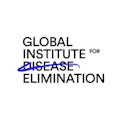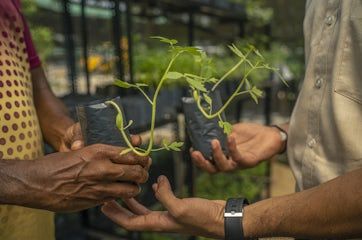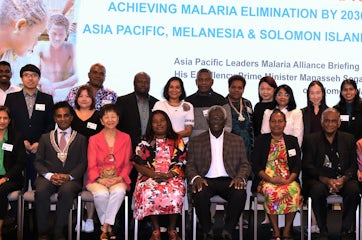ASTMH 2023: Climate Change and Malaria Elimination - Perspectives from the Ground
by Diana Yousef & Alta Alonzi •
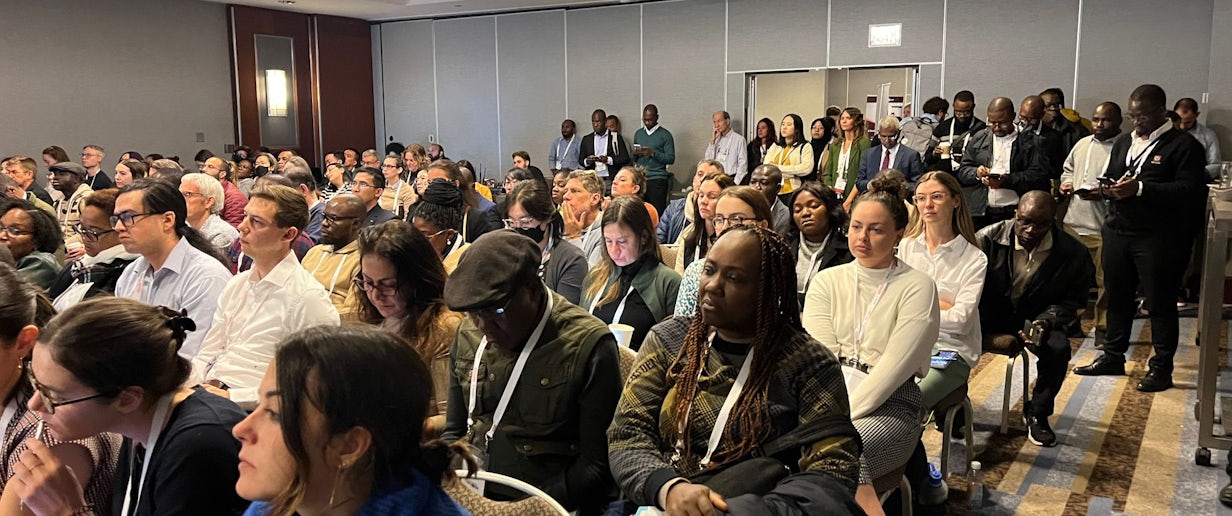
Audience at the 'Climate Change and Malaria Elimination: Perspectives from the Ground’ symposium. Credit: GLIDE 2023
Climate change and its far-reaching implications are impossible to ignore: it is a harsh reality that touches the lives of millions. The Intergovernmental Panel on Climate Change (IPCC) reported that 3.6 billion people already live in areas highly susceptible to climate change.
Emerging evidence shows that malaria, an ancient adversary, could potentially find new avenues and opportunities to spread and thrive in the face of our changing climate. This poses an existential threat to malaria elimination, risking reversal of decades of progress against the disease.
It is the intersection of these two global challenges that influenced the topic for our sponsored symposium, held in conjunction with the 2023 The American Society of Tropical Medicine & Hygiene (ASTMH) Annual Meeting last month. Co-hosted by GLIDE, APLMA and Malaria No More, ‘Climate Change and Malaria Elimination: Perspectives from the Ground’ featured five notable speakers who shared country experiences and expert perspectives on the impacts of climate change on the global malaria response.
Climate Change & Malaria Elimination
In his framing remarks, Simon Bland, GLIDE CEO, shed light on the intricate and multifaceted interplay between climate change and malaria. He stressed the complexity of this relationship, acknowledging the diverse challenges it poses while also highlighting potential opportunities. Bland emphasized that it is far from a simple, linear equation, with uncertainties and unknowns surrounding the impact of climate change on malaria elimination. He also mentioned that there is a growing recognition of the critical importance and a heightened enthusiasm among individuals to explore the relationship between climate change and disease elimination, particularly in anticipation of COP28, underscoring the urgency of global collaboration and informed action.
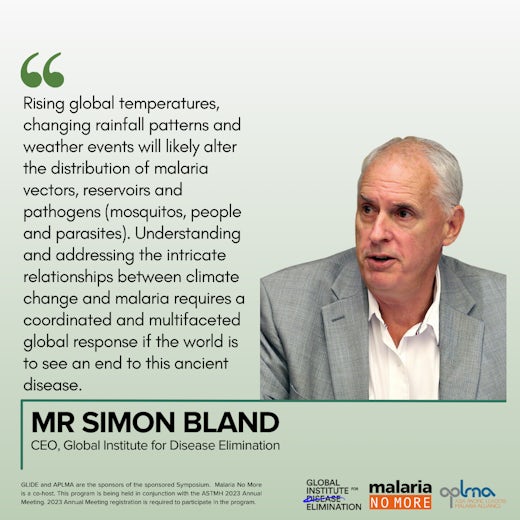
Dr Daniel Ngamije, WHO Director of the Global Malaria Programme, provided the keynote talk and noted that last year, flooding in Pakistan was one of the most extreme climate-related disasters in living memory. At its height, more than half of the country was underwater and more 33 million people were affected. When the floods eventually receded, mosquitos came out en masse, driving the worst malaria outbreak the country had seen since 1973. The floods took the heaviest tool on the districts that were already hardest hit by malaria, a more than four-fold increase in 2022 compared to the previous year, with poor and vulnerable populations living in hard-to-reach areas bearing the brunt of the outbreak. There are many unknowns around how a changing climate will impact malaria transmission, but one thing is clear: the consequences will be felt most by people living in low-income countries, who contribute least to the problem.
There are many different pathways to how climate change might affect malaria transmission and burden. However, available evidence on the longer-term impacts of climate change on malaria transmission is sparse, and projections come with uncertainties. What is certain is that climate change will have indirect effects on malaria.
The WHO is at the forefront of highlighting the consequences of climate change on health. This year, for the first time, WHO will include a dedicated chapter focused on the climate and malaria nexus in the World Malaria Report. In 2024, WHO will convene an expert group to review available evidence and come to a common position. We need to hear first and foremost from voices in the field as we shape and refine our narrative.
Dr Ngamije closed his remarks with reflections on recent flooding in Madagascar, Malawi and Mozambique - three countries battered earlier this year by Cyclone Freddy. In the wake of the longest lasting tropical cyclone in recorded history, more than 300 health centres were destroyed, leaving vulnerable populations without medical services. As seen in Pakistan, heavy rains were followed by a surge of cases in malaria and other diseases. He closed with a stirring call to action to build environmentally sustainable health systems, as well as for action at the individual level.
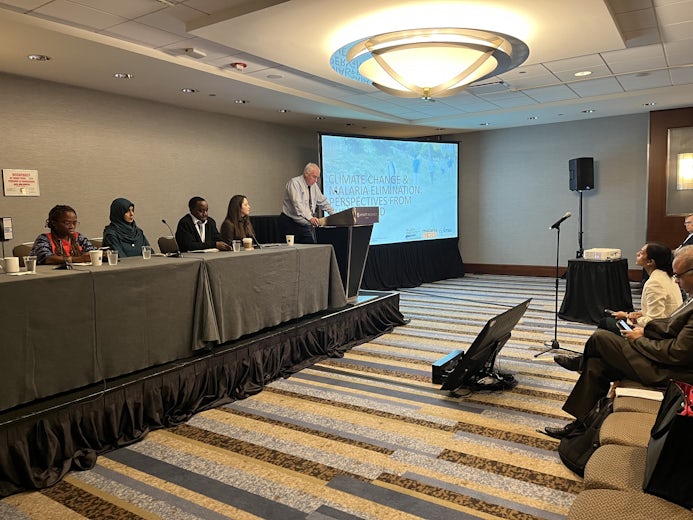
Country Perspectives
On-the-ground perspectives provide a nuanced understanding of the contextual realities and unique challenges faced by each country. This insight is crucial in tailoring effective interventions that resonate with the specific needs of the local population. As the Director of Mozambique's National Malaria Control Program (NMCP) since 2015, Dr Baltazar Candrinho provided a firsthand account of navigating the challenges of malaria elimination post-Cyclone Idai and Cyclone Freddy. His close-up view unveiled the complexities faced by Mozambique in sustaining malaria control efforts in the aftermath of devastating cyclones. Dr Candrinho shed light on the impact of climate change on the seasonality of malaria in the country, emphasizing how this dynamic factor influences the timing and effectiveness of interventions and the need for adaptive interventions that align with shifting patterns.
Dr Farah Qamar, an Associate Professor at Aga Khan University in Pakistan, discussed the challenges regarding malaria resurgence posed by the catastrophic flooding in Pakistan in 2022, the worst flooding in its history, which resulted in at least a four-fold increase in the reported number of malaria cases in Pakistan. Dr Qamar offered practical insights on the implications for disease control strategies. She highlighted the need for rapid diagnostic tests and additional resources directed towards local entomologists to explore and communicate potential solutions. Addressing the complexities of climate change and disease control requires not only strategic interventions but also a continuous dialogue that incorporates real-world experiences from the ground.
Civil Society Perspective
Understanding the intricate relationship between climate change and health emphasizes the need to amplify the voices and insights of communities and individuals affected by these challenges. Olivia Ngou, Founder and Executive Director, Impact Santé Afrique shared insights from the civil society perspective and highlights that the destructive impact of climate change extends to dismantling the essential tools communities rely on to protect themselves from malaria. This setback not only exacerbates health challenges but also disrupts the hard-earned progress in malaria control efforts. Recognizing and incorporating these perspectives is crucial for fostering a holistic and effective approach to address the complexities at the intersection of health, climate change, and community resilience.
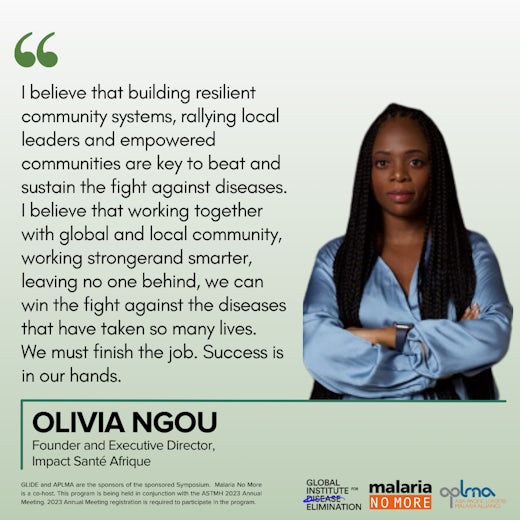
Climate modelling and Malaria Elimination
Kelly Willis, Managing Director of Strategic Initiatives at Forecasting Healthy Futures, discussed early-warning tools, emphasizing the challenge of importance of developing capacity to efficiently utilize the information produced by innovative models. In addition to her insights, Willis stressed the pivotal role of knowledge and advanced predictive tools in bolstering climate resilience, emphasizing the need for ongoing innovation to predict and address the evolving effects of climate change.
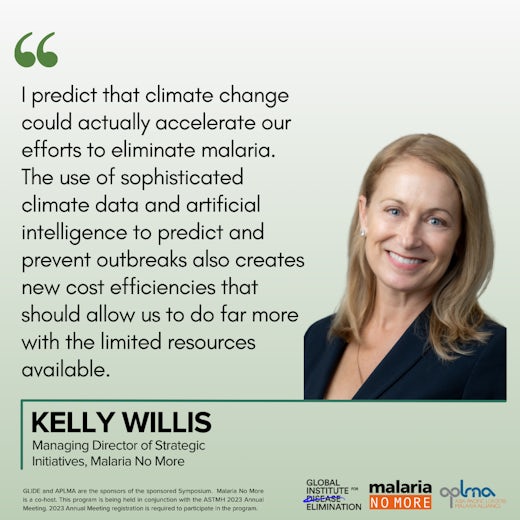
This symposium effectively united diverse malaria viewpoints from around the world to showcase the issues and steps being taken to ensure that emerging challenges like climate change will not impede the global goal of eliminating malaria by 2030. In his closing remarks, Dr Sarthak Das, CEO of the Asia Pacific Leaders Malaria Alliance (APLMA) thanked all the speakers for their invaluable contributions and stressed that the challenge of climate change only further highlights the necessity and moral responsibility for collaborative efforts in ending this ancient disease.
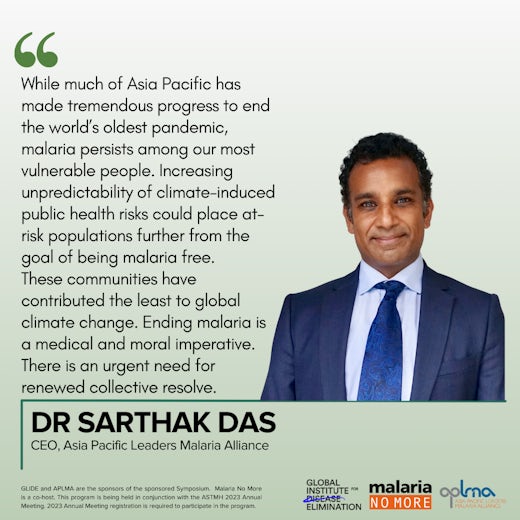
This blog has been co-published by GLIDE. Read their version here.


